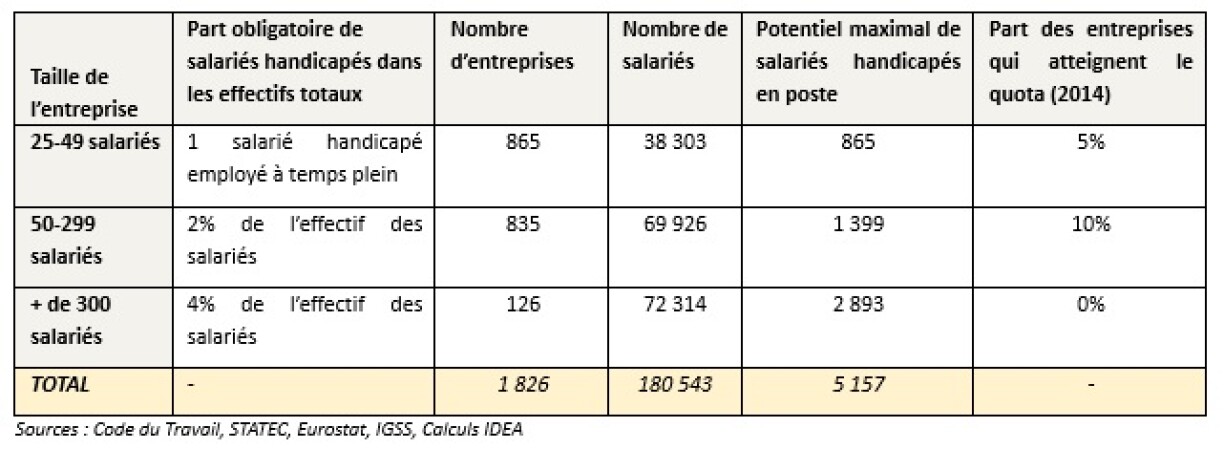
The Employment Code clearly states that every business with more than 25 employees must have a certain number of disabled employees.
Whilst the code may not use the term, this is clearly a quota.

The right-hand column of the table shows a clear issue: none of the companies with more than 300 employees respected the Employment Code in 2014, as not one company achieved the quota of 4%.
Smaller (25 to 49 employees) and medium-sized (50 to 299 employees) businesses were not much ahead of the larger companies, as only 5% and 10% respectively achieved their quotas. However, this may not necessarily be the fault of the companies in question.
This issue is one that Sarah Mellouet, economist for the Idea Foundation (Fondation Idea), highlighted at a recent discussion on employment diversity. She confirmed that businesses are not respecting these quotas, but also questioned whether the Employment Code is sufficiently realistic in terms of businesses and the profiles of disabled employees.
The cruel reality of the matter is revealed when you examine the profiles of the unemployed disabled demographic: 77% of them are under-qualified, 63% are over the age of 45, and 90% are long-term unemployed. This leads to an unemployment rate almost six times higher than the average.
Disabled employees only represent 10% of job seekers registered with the National Employment Agency (ADEM). In 2016, nearly 9,200 disabled people entered the job market. Of these people, only 3,400 received employment, of which 60% are employed in sheltered workshops or the public sector. Mellouet pointed out that the public sector equally struggles with quotas.
The economist believes that the quotas are fundamentally and put their relevance for businesses in doubt. She pointed out that requiring quotas legally is insufficient.
In theory, companies who have not hired the minimum number of disabled employees should be subject to monthly sanctions equivalent to 50% of the minimum wage for each disabled employee who is not hired by the company in question.
However, Mellouet has no knowledge of any such sanction being applied to companies. She explains that this is understandable, as the ADEM would require a sufficient number of job-seeking applications from disabled people who also qualify for these companies’ needs for the sanctions to be valid.
Mellouet estimated that it is a relatively complex process which discourages companies from hiring disabled employees, and reflects badly upon the ADEM, as it has failed to recommend adequate profiles.
She highlighted the need for training for disabled people to be improved in order to help them join the job market, citing projects with concrete approaches which are successful. She explained that this training must take the individual’s disability (whether physical, mental, intellectual, or sensory). Finally, she said that the communal charter on promoting equality for disabled people on the job market must become a reality.